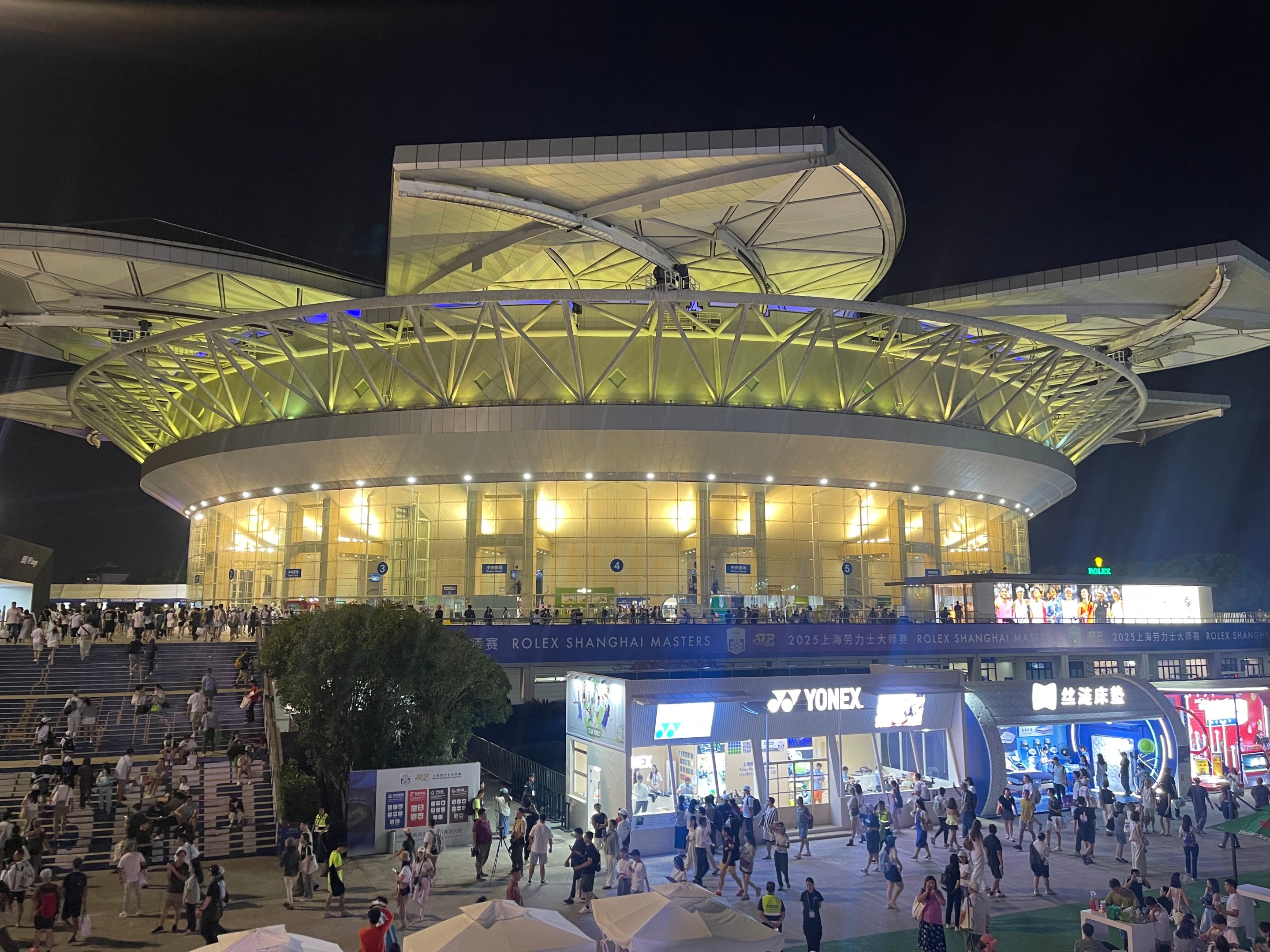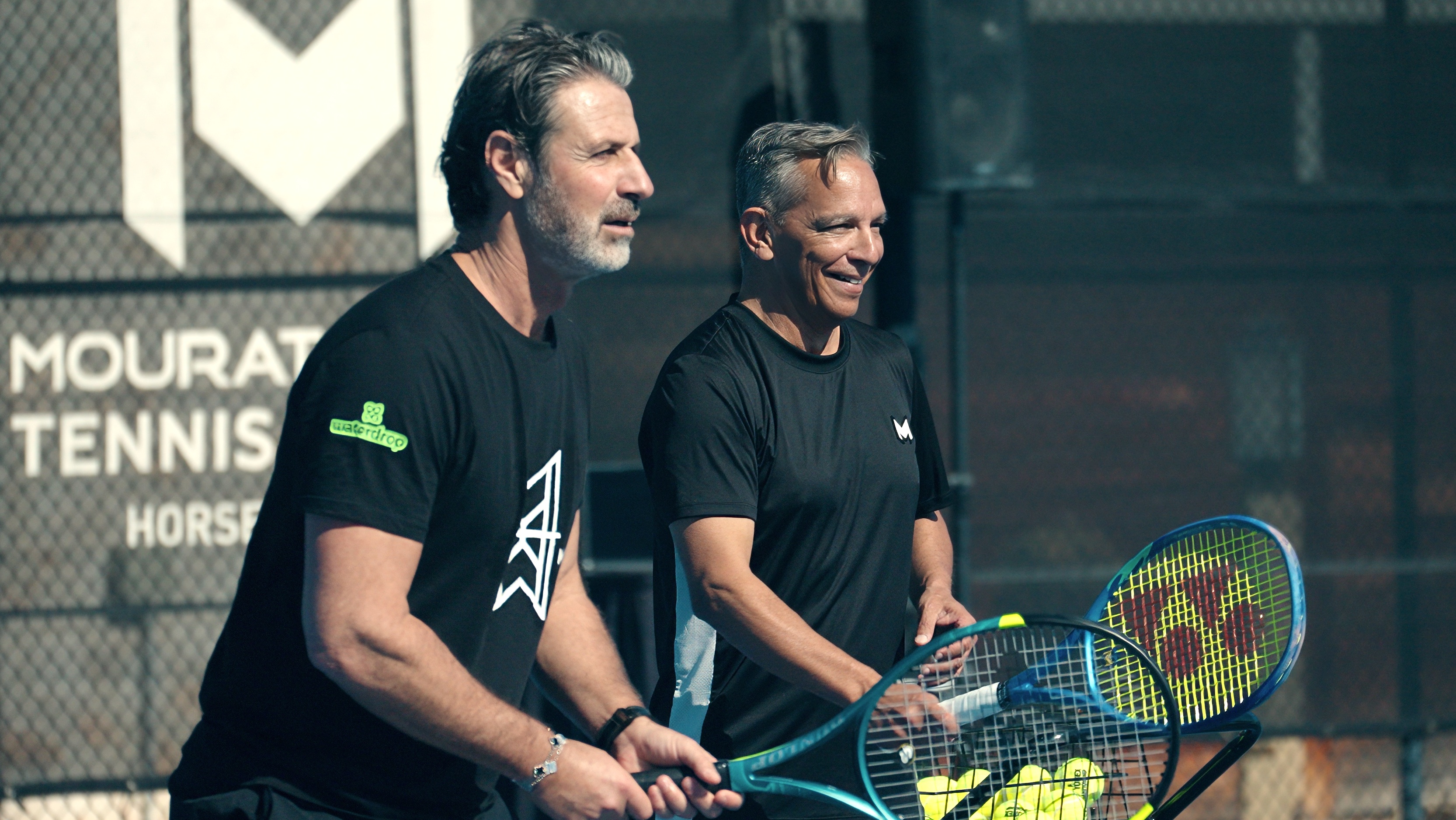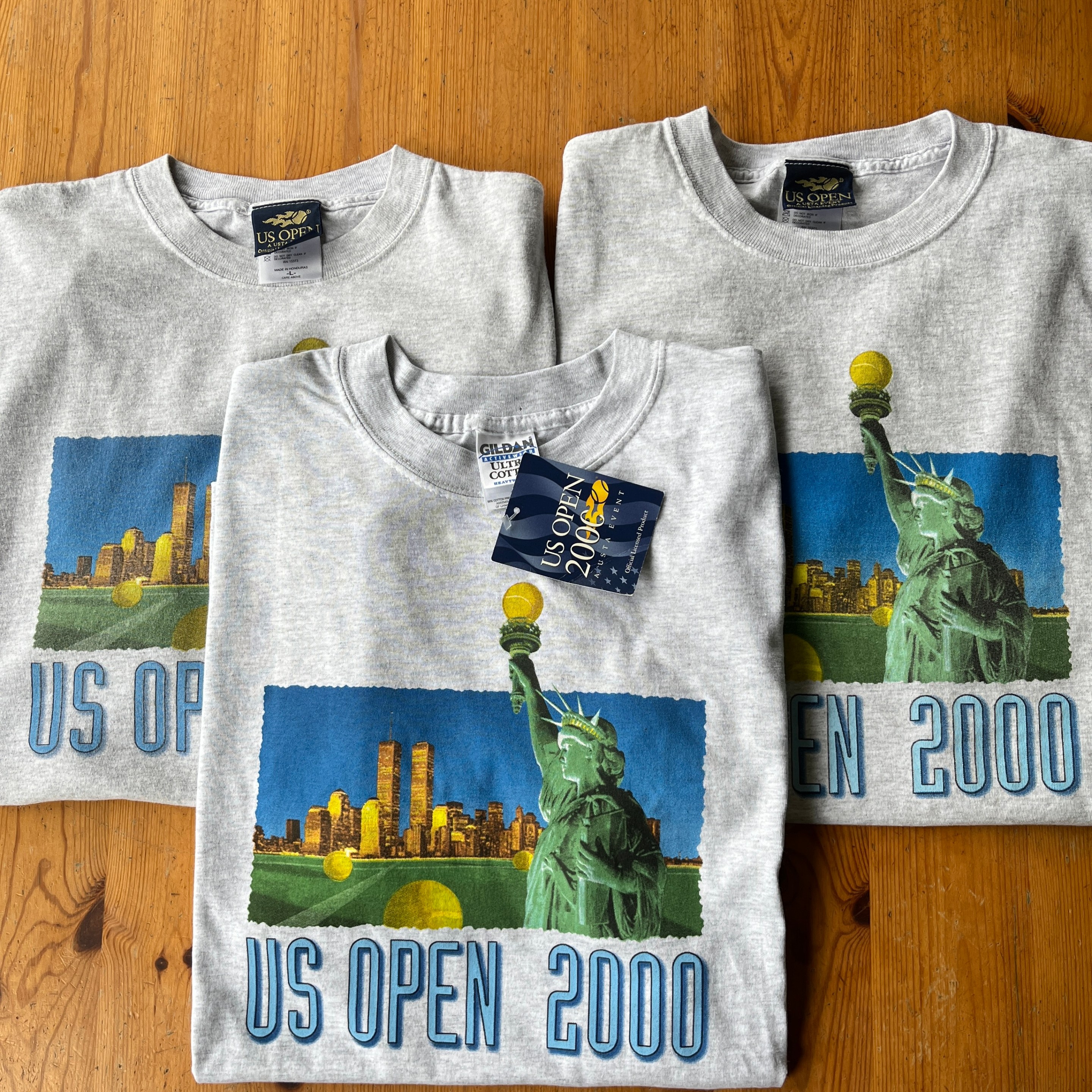Last week, I attended my first Chinese tennis event: the Rolex Shanghai Masters. It was a sensory journey, combining excitement, awe, and quiet confusion. It felt like modern China itself: futuristic and polished, yet still striving to assert its place on the world stage.

The streets leading to Qizhong Forest Sports City were lined with banners of Sinner and Alcaraz, flanked by Chinese flags still hanging from the National Holiday Golden Week. Neither player was competing–a reflection of tennis’s relentless calendar and China’s eagerness to align itself with global icons nonetheless.
Fans queued half an hour before the gates opened at 11 am–impressive for a workday right after the national holiday. Security staff with megaphones alternated between Mandarin and heavily accented English, earning a cheerful “Good English!” from the crowd.
The grounds felt like a tennis festival/tech expo hybrid. Sponsored brands were everywhere, but with a Chinese twist: claiming a goody bag meant scanning a QR code and posting on Xiaohongshu (RedNote, the platform TikTok-ers flocked to during its brief ban). The emphasis on the hashtagged posts felt perfectly in line with a culture where a review or check-in at a restaurant often earns an extra appetizer. Not “authentic” by Western standards, but unmistakably Chinese: curated and efficient.
Bronze statues of past champions lined "Champions Avenue." Inside the history pavilion, last year's champion Jannik Sinner already had his own bronze likeness. Nearby, a Yonex pavilion stood beside an exhibit tracing the event's history. In China, Yonex is famous for badminton; its presence here felt like a bridge between familiarity and aspiration.
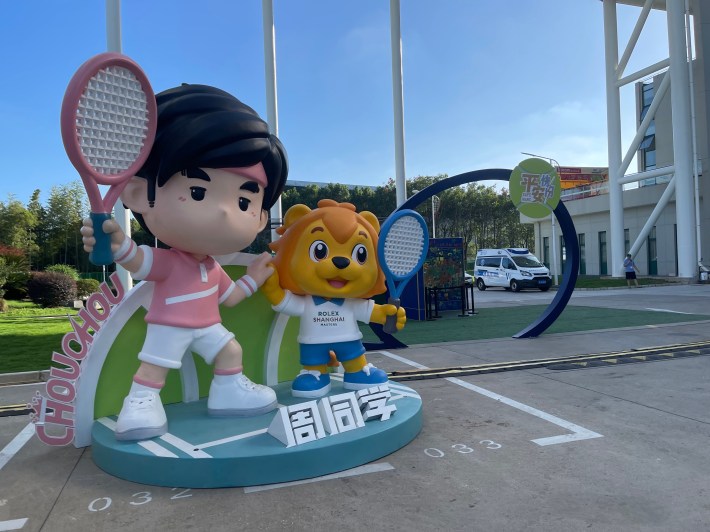
Tournament ambassador and Taiwan's pop king, Jay Chou, was immortalized in cartoon form beside the event’s mascot lion. One night, Chou performed a sold-out concert across town, attended by tennis pros like Zhang Zhizhen. In Shanghai, sport and celebrity orbit the same spotlight.
Between the brand activations and choreographed energy, maintenance workers swept quietly through the crowds–a subtle reminder that for many, steady work in this city is already a kind of victory.
Inside the main stadium, a giant Chinese flag mirrored the Stars and Stripes at Arthur Ashe Stadium, but suspended over a venue half the size. With 15,000 seats and a magnolia-shaped retractable roof (the magnolia is Shanghai's city flower), the stadium balances intimacy with spectacle.
The doubles semifinal between Arevalo/Pavic and Goransson/Michelsen was surprisingly well-attended for a weekday, with spectators clustered in shaded sections. Depending on the camera angle, the stadium looked either half-empty or nearly full–a reminder of how easily narratives are shaped.
As a recreational player, I’ve found tennis here surprisingly accessible. But accessibility isn't equality; when I sent my cousin a photo of the packed stands, he replied, “Only the privileged can skip work on a Friday.” For many, tennis remains a luxury–a symbol of leisure and global aspiration.
Crowds swelled for the Medvedev vs. De Minaur match. Chants of “Daniil!” and “Alex!” echoed as fans groaned at mishits and cheered second serves, dismantling the tired “empty Chinese stadium” trope. The fan mix was revealing: a young crowd discovering tennis through Zheng Qinwen's success, mingled with older generations who watched Li Na play.
After the main matches came the Roger & Friends Celebrity Doubles Match with Hong Kong action star Donnie Yen, mainland actor Wu Lei, and former Wimbledon doubles champ Zheng Jie. A section of red-clad Roger superfans roared at every one-handed backhand, but even Federer couldn’t outlast Shanghai’s work ethic; as the third-set tiebreak stretched past 10:30 pm, and with Saturday designated a make-up workday after Golden Week, fans quietly began filing out.
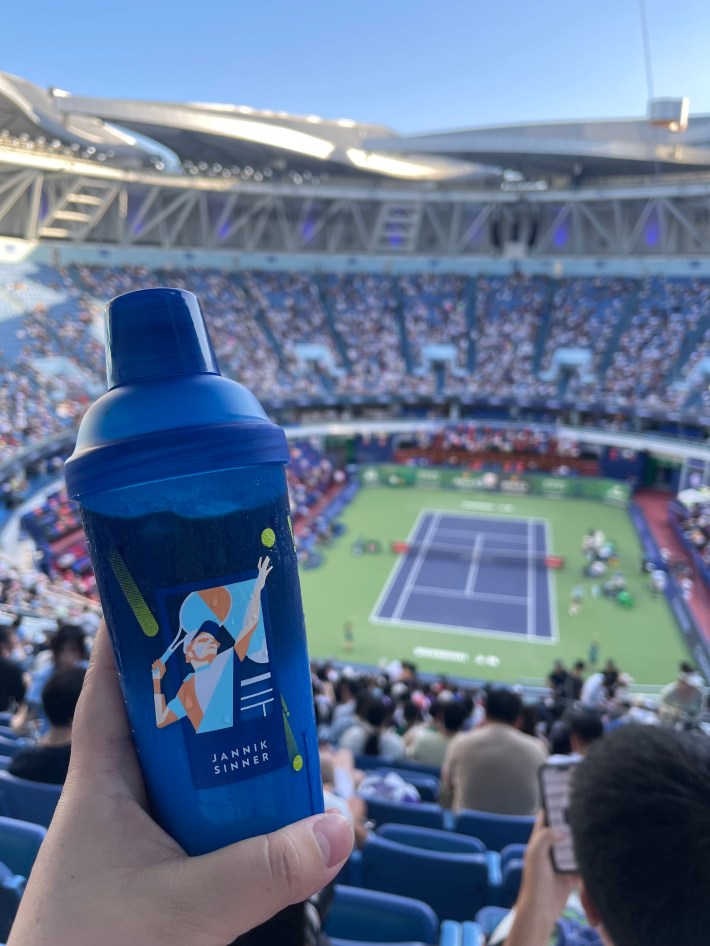
Watching tennis in China as a Chinese Canadian stirs mixed feelings. Musetti’s frustrated outburst about the constant coughing from the crowd in Beijing exposed the cultural gaps that still linger. His words were rude, yes, but not entirely baseless: Walking through the city after the tournament, the faint smell of cigarettes was a reminder that smoking remains deeply woven into social and business culture, exacerbating decades of pollution only recently curbed by government air-quality controls. But things are changing: I’ve never worn sunscreen in China (assuming the smog would block UV rays), but I left the tournament with a sunburn after a day under a clear blue sky.
Valentin Vacherot, a player ranked outside the ATP top 200, won this year’s title. In a nation of 1.4 billion, where hard work runs deep, his story resonates. That quiet pursuit of dreams might be the most profound story unfolding on China's tennis courts: the story of a generation quietly redefining Chinese tennis fandom, one point at a time.
Alyx Ke is a Chinese Canadian and the author of the Game Set Boba newsletter.
